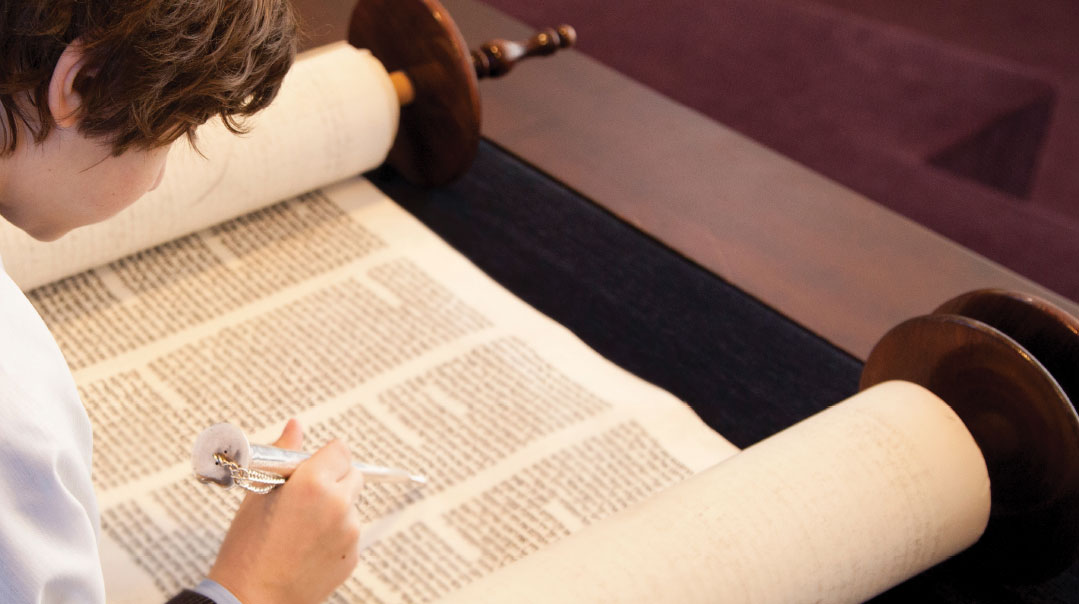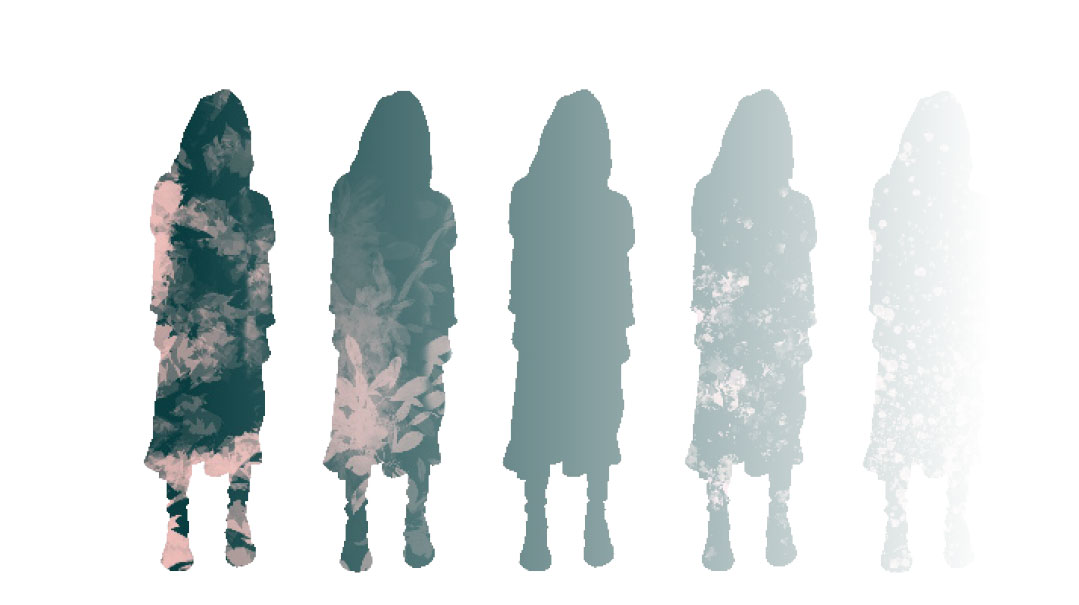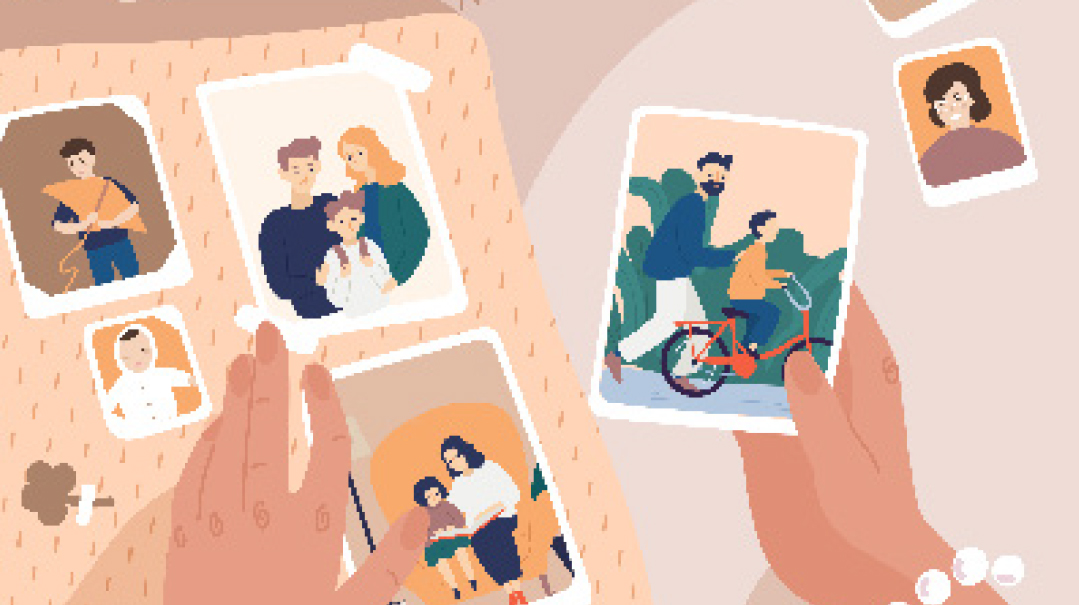Alone Together

We had so few relatives, but so much family

Planning a bar mitzvah was a “first” for me. I started the process nine months in advance.
I had no clue about the costs of these things, nor the halachos, either. I grew up secular and poor, so bar and bas mitzvahs were simple birthday parties with cake and pizza and a few friends. When I started getting quotes for a caterer and photographer, for the invitations and the suit and hat, my heart began to race. I wondered if we could get away with a simple birthday party….
Somehow, as September, the month of the bar mitzvah, approached, everything began to fall into place. The invitations were sent out, response cards were coming in, and I started putting together the blue-and-silver centerpieces. We opted for a party, with my son’s favorite DJ (a bochur who learned in a local yeshivah), his favorite foods (hot dogs and hamburgers), and yarmulkes with his initials stamped on the side as a souvenir, which cost us an arm and a leg.
I reasoned with myself that Shlomo Zalman had so much on his plate he deserved a happy night with his friends, his parents’ friends, his school principal, and his Judaic studies teacher, Rabbi Dov. He deserved it because he’s not your average bar mitzvah bochur.
You see, Shlomo Zalman has dyslexia.
Dyslexia has led us along a tough road, with many roadblocks and a complex school experience. Yet, we’ve also been fortunate enough to meet amazing teachers.
As plans for this great celebration were coming to a close, a rav we’re close to let us know that a boy’s first aliyah to the Torah on Shabbos needs to be accompanied by a minyan of men, and a kiddush is recommended as well. I was so stressed by all the event coordination that adding “organizing a kiddush” to the to-do list was an unwelcome surprise. Of course I’d attended many a boy’s bar mitzvah kiddush, but I’d always assumed it was done simply to host the baalei simchah’s visiting family. I hadn’t realized it was recommended even in the absence of family.
So this wrench of a Shabbos kiddush made me extremely anxious. Who would come? We lived out of the neighborhood, and it’s quite a far walk for our friends. On top of that, my son doesn’t read Hebrew due to his dyslexia. For months I’d been nervous about whether he’d be able to say the brachos on the Torah. Would he come through?
These questions were swirling in my head as I ran to the supermarket, grabbing cookies, candy, and drinks off the shelves, and throwing them into my shopping cart. The rebbetzin of my shul promised me her potato kugel and cholent, and my husband went to get beef jerky because it was Shlomo Zalman’s favorite food.
I spent the entire Erev Shabbos crying. Although I’d never been invited to a Shabbos bar mitzvah event, I assumed that FFBs were always joined by a large extended family, as well as the boy’s classmates: all 30 of them. But because of our location, and the fact the kiddush was so impromptu, I didn’t expect us to have more than 20 guests.
Finally, it was nearly Shabbos. I applied my makeup and helped my son straighten his hat. When he headed out to shul with his father and younger brother, I felt so gypped. The house was quiet. It was just me and my five-year-old daughter. There would be no Friday night dinner in a hall with all the siblings-in-law and the nieces and nephews, no grand Shabbos day meal to mark the occasion. I went to light the Shabbos candles, and all I could do was whisper the brachah and cry into the hands that had just finished waving in the Shabbos queen.
The next morning, we rushed to get to shul on time. The boys left early, and I quickly put my daughter and myself together and off we went. I was the only woman there, and I had no clue where the men were up to. Being alone behind the mechitzah made everything more confusing. The rebbetzin arrived and soon a good friend did, too.
Then it was time for my son’s first aliyah to the Torah. He came up to the bimah with my husband: a little boy becoming a man. He stood proudly, shoulders squared, and took out a piece of paper on which he’d transliterated the brachos with my husband on Erev Shabbos. My husband put his tallis around Shlomo Zalman’s shoulders and there stood my little boy, enveloped by the morning sun. He said each brachah with clarity; his young voice could be heard throughout the shtibel.
The few friends that began to trickle in all asked the same question: “Is your family here?”
“No,” I replied. My mother was in Italy and my father was in Mexico. My brother was probably in his apartment watching TV. Who did I have the honor of thanking for this? The Nazis and the Communists.
Just three generations ago, my great-grandmother, the mother of seven children, celebrated bar mitzvahs and weddings surrounded by not only friends from the shtetl, but also siblings and cousins and other extended family members. My great-grandfather had been the town butcher. My mother told me they’d host people for Shabbos meals at a long table, long enough to fit the children, the guests, and the cousins and aunts and uncles.
But three generations later I was alone. My family is a tree that grew out of cement. The Communists and the Nazis stole the hearts and minds of Russian Jewry. They destroyed my yichus, my Jewish identity, and made sure that my family would never lay eyes on a bar mitzvah boy celebrating his aliyah l’Torah. My family was only interested in the party and the food — a Shabbos aliyah to the Torah meant nothing to them. Even if I’d tried to explain it to them, invited them to come to shul, they would’ve look at me blankly.
Kiddush followed davening. The room was bursting at the seams. People poured in from all over the city. Our friends, Shlomo Zalman’s friends, community members. The 20 people I was expecting quickly became 70… and the cholent was gone in seconds, as well as the potato kugel and the nosh. There the singing and dancing began. Rabbi Yanky Brazil came and sang the most beautiful niggunim.
I was alone, but I was also together with the friends who had made Shabbos special for us. Our friends were our family that day. Rabbi Cohen, Rabbi Brazil, Rabbi Bondi, Rabbi Weinberger, Mr. and Mrs. Grinberg, the Drandoffs, the Grosses, the Goldmans, the Stolls, the Karpmans… and all the latecomers who missed out on my 20-person kiddush. I’m sorry the food was consumed and there was barely a drink left.
I looked up at the sky on this brilliant day and whispered a thank you to Hashem. And to my great-grandmother; she must have davened really hard so that this day would be so beautiful, to be zocheh to witness a strong tree growing out of the smoke and ashes. Here was her great, great-grandson, beaming from ear to ear as he read from his transliterated sheet of paper.
We, the Jews of Russia, we didn’t die out, we will not hide in fear, we will not be silenced!
And my son, even though he isn’t able to attend a regular yeshivah because of the severity of his dyslexia, can now be part of a minyan. He may need a transliterated siddur, but he can belong to something greater than himself.
(Originally featured in Family First, Issue 670)
Oops! We could not locate your form.













